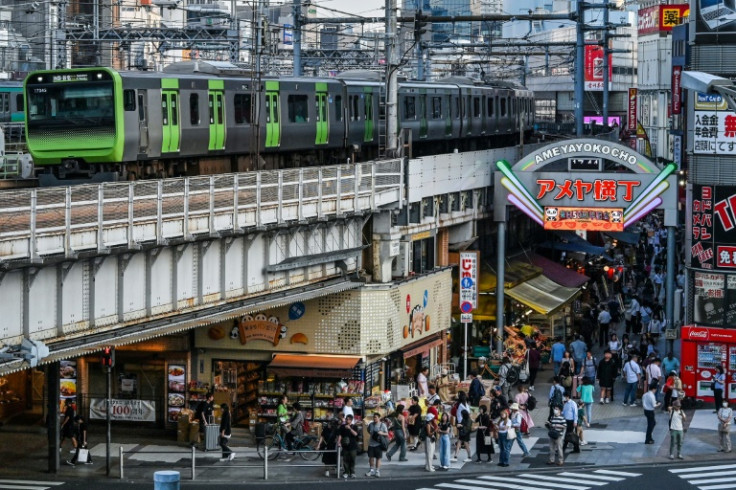Japan Inflation Rises Slightly To 2.6% In June

Japanese inflation was slightly higher in June, with prices rising 2.6 percent on-year compared with 2.5 percent in May, internal affairs ministry data showed Friday.
But the core Consumer Price Index (CPI) reading, which excludes volatile fresh food prices, was still softer than market expectations of a 2.7 percent increase.
"Energy prices rose," boosting the overall figure, even though "the pace of increase in electricity and gasoline bills slowed", the ministry said.
The data comes as the Bank of Japan takes gradual steps away from the ultra-loose monetary policies that have sustained the world's fourth-largest economy for over a decade.
Analysts are speculating on when the bank will make its next rate hike after it increased interest rates in March for the first time since 2007.
The BoJ's next policy decision is due on July 31.
UBS economists Masamichi Adachi and Go Kurihara said BoJ policymakers would raise rates "once they have greater conviction in their economic and inflation outlook".
But "without a recovery in consumption in summer, the conviction will likely not return", so "the next three months are critical".
Last month, the central bank said it would scale down its huge purchases of government bonds -- the latest attempt to move away from a quantitative easing programme designed to banish stagnation and harmful deflation.
The BoJ wants to see demand-driven inflation of two percent, fuelled by wage increases.
Japanese inflation has been above the target since April 2022, but analysts question to what extent this is caused by temporary factors such as the war in Ukraine.
The yen has also tumbled against the dollar this year, driving up the price of imported goods in Japan.
"We expect inflation to slow over the coming months," but this will be "very gradual" because of the weak yen and the delay in producer prices reaching consumers, said Stefan Angrick, senior economist at Moody's Analytics.
"The supply shocks that drove the initial pickup in prices are fading, and evidence of demand-driven price pressure remains preciously sparse," he said.
"This will eventually pull inflation below the Bank of Japan's two percent target before the end of the year, complicating the central bank's plans to raise interest rates."
Excluding fresh food and energy, Japanese prices rose 2.2 percent in June, following a 2.1 percent rise in May.
© Copyright AFP 2025. All rights reserved.





















